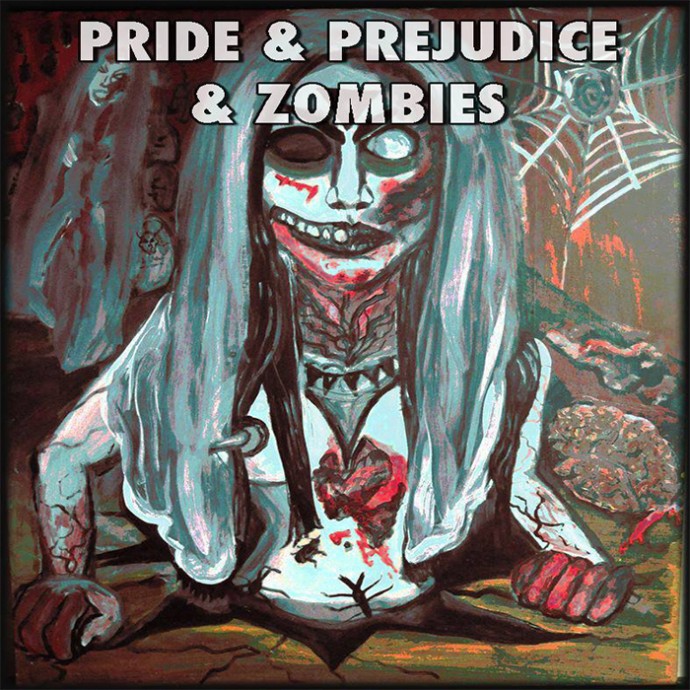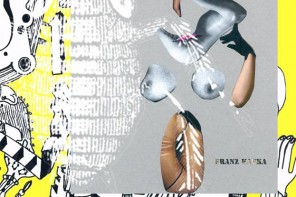There’s Mr. Darcy’s Diary. There’s Mr. Darcy’s Daughters. You can even spend Christmas with Mr. Darcy. (But don’t despair if you’re not the religious type; Happy Birthday, Mr. Darcy is also a celebratory option.) Jane Austen Fan Fiction is flourishing ever since Colin Firth stepped out of the lake as the dripping wet Darcy in BBC’s TV version of Pride and Prejudice. By definition, Fan Fiction continues the stories of a certain source text – for instance, authors focus on one specific character, explore a subplot, or take on a different perspective. That way, Harry finally gets it on with Hermione or Dexter Morgan ends up as a harmless middle class dad. Fan Fiction allows readers to become active and productive in appreciating their favorite texts – be it novels, movies, or TV shows. However, there’s a not-so-slight difference between classic Fan Fiction and the ones produced by the writers of the various Darcy chronicles: money. Stories based on Austen’s novels long ago left the forums of online fanbases. Authors and publishers are making great profit from the buying power of the omnivorous Austenmaniacs.
Take Amanda Grange, for example. After the success of Mr. Darcy’s Diary, she proceeded to write cheesy diary entries for each of the remaining five male main characters in Austen’s novels that would have good old Jane spin in her grave. Not only are these supposedly authentic changes of perspective terribly written, they also include a large amount of the original dialogues without clear reference, highlighting the thin line between inspiration and plagiarism in these particular realms of Fan Fiction. Weirdly enough, the market for Austen products is nowhere near mature. Books, movies, and all kinds of products are sold via the brand name Jane Austen. These products can be as absurd as Jane Austen tea towels. Still, when a truly new kind of Austen appreciation hit the market, there was an uproar – particularly among well-paid authors of the Fan Fiction genre.
For its truly horrendous spin on Austen’s most famous novel, Seth Grahame-Smith’s Pride and Prejudice and Zombies was highly criticized by several writers claiming to be faithful to the original plots. His take on the love story between a proud young man and a prejudiced young woman, struggling with the rules and morals of Regency England, includes a rather large number of flesh-eating characters. Here’s the thing though: in its own gruesome way, Grahame-Smith’s version is by far more faithful to Austen’s original than many of the various published Darcy fantasies – starting with him actually naming Austen as co-author. The book is about 60 percent original Austen and 40 percent zombie madness. Published in 2009, Grahame-Smith’s reinterpretation picked up on the recent fascination for the undead. Shows such as AMC’s The Walking Dead present the much feared – and by some eagerly awaited – Zombie Apocalypse as an alternative world that might be dangerous but allows for a change of values and social ranking as well as a taste of anarchy. Moreover, excessive violence and – at least in the case of TWD – a strikingly sexist society are part of the package.
Sexism is an interesting keyword in the endless academic as well as pop-cultural debates about Austen. Her characters have been called both trapped in a male-dominated culture and unrealistically emancipated for their time.Whichever they are, the Bennet sisters are definitely turned into well-trained killing machines in Grahame-Smith’s novel. A horde of Undead certainly doesn’t stop them for long on their way into town to flirt with a horde of handsome officers.But there’s more to the book than a few bloody amusing passages weaved into a classic love story. Grahame-Smith builds in his zombie mayhem specifically at those points in the story where Austen’s delicacy lead her to be oblique rather than explicit.
So when Charlotte Lucas agrees to marry the not-so-dashing Mr. Collins, she doesn’t simply allude to her age, stating that she isn’t in want of romance anyway, and giving numbers of literary scholars reason to debate her societal status or sexual orientation. In Pride and Prejudice and Zombies, she confesses to Lizzy that she has been “stricken by the plague” and longs to get as far away as possible from her friends and family so as to cause them no harm. It doesn’t get more explicit than that. And if you want to critique all over the place, the plague works perfectly fine as a metaphor for poor, unmarried women in those days. Grahame-Smith is well aware of his inferiority to his co-author: He doesn’t dare to reinvent her characters. Neither vituperative Lizzy nor hilariously articulate Mr. Collins needs an “update”. All Grahame-Smith does, is to place them in a different environment. His Jane Bennet still blushes over embarrassment – only now, she also knows how to use a Brown Bess.
As for the argument of Jane’s grave-spinning at the thought of having zombies invade her narrative, Austen herself had quite a thing for horror stories and understood perfectly well why readers enjoy them. Her novel Northanger Abbey features a heroine that is so absorbed in the stories of Gothic literature, such as Ann Radcliffe’s The mysteries of Udolpho, that her imagination vastly influences her reality. The way Catherine Morland enjoys the shudder of supernatural ongoings in old castles is very similar to a viewer’s satisfaction when Daryl’s crossbow finishes off another one of the Walking Dead. The whole horror genre, including all the various zombie fantasies, might just be today’s Gothic fiction.
Interestingly, just like the zombie trend, the current Austenmania is mostly an American phenomenon. It seems as though the idea of Jane Austen’s England provides a mental escape to apparent simpler times and less complex relationships – leaving aside the fact, of course, that this perfect countryside idyll was based on a strict class system and slavery in the British colonies. Austen’s novels are full of well-drawn characters and witty dialogues, but let’s face it: politics really wasn’t her thing. In those parts of the book, Grahame-Smith’s voice is most clearly distinguishable from Austen’s original. In his version, the Bennet sisters somehow turn out to be passionate patriots, fighting to save their homeland from impending doom. (Get the American part yet?) Lizzy, after refusing Mr. Collins’ proposal, proudly states to her aunt:
“[…] I find my thoughts returning to the protection of our beloved England, for truly there can be no higher purpose; indeed the feelings of one young lady seem rather insignificant in comparison. My talents and my times demand my service, and I believe the Crown more pleased to have me on the front lines than at the altar.”
In none of Austen’s novel is the crown or the monarch ever mentioned in such a way. Whether she simply stuck to what she knew or purposefully avoided such references as a kind of marketing tool, we will never know. This kind of clumsiness in adjusting Austen’s plot is characteristic for most of Grahame-Smith’spart of Pride and Prejudice and Zombies. But as this was never meant to be a faithful adaptation, even the Austen-accustomed reader forgives him for that and chuckles when Lizzy, after his arrogant proposal, roundhouse-kicks Darcy into the mantelpiece as a means of refusal.
Obviously, this isn’t high literature. But again, it was never meant to be – as opposed to what Grange & Co. are producing. Pride and Prejudice and Zombies provides not only a twisted, but a truly new angle to a text that has been copied, reinterpreted, and abused in so many ways. Of course, Grahame-Smith is making use of the cheap formula “classic + scandal” and is well aware of the large target group of the Jane Austen brand. But personally, having read Jane Austen multiple times, I think she’d prefer a few zombies in Pemberley rather than a 15 dollar tote bag saying “I love Mr. Darcy”. Plus, in – almost – her own words:
“It is a truth universally acknowledged that a zombie in possession of brains must be in want of more brains.”
This text review is part of Textasy, Sensa Nostra’s new text reviews section. Want to contribute?







